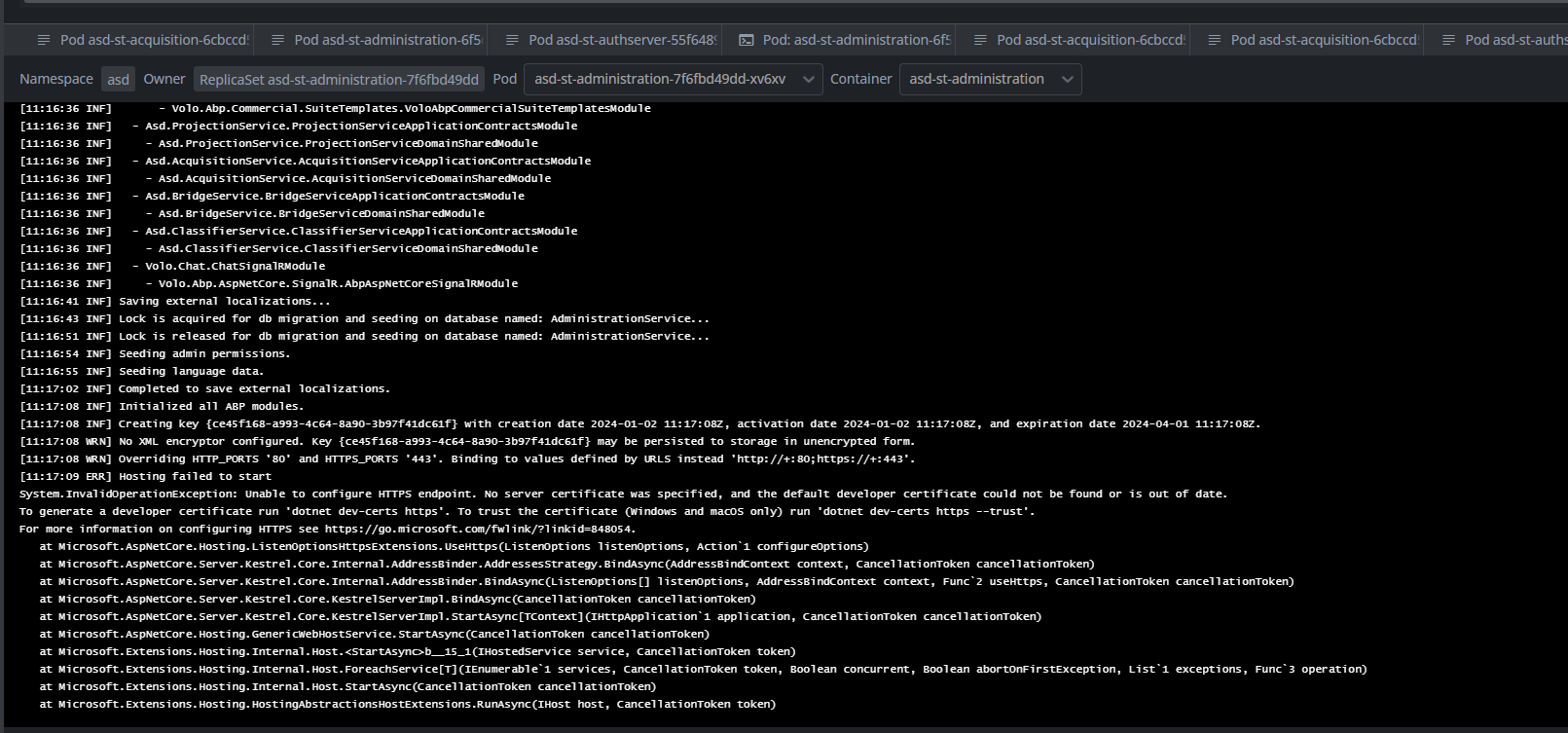Aktivity „icoretchi“
In my context the LocalizationResource is properly assigned for the Application Service and localization for exporting to excel it's not working. And I have to mention that for microservices template all the application services are inherited from the base class which properly assign the LocalizationResource. I think the problem is in this specific method GetListAsExcelFileAsync() how is called from UI (in my case from Blazor). I reiterate again the L, as StringLocalizer is working properly from any method of the ApplicationService, besides the GetListAsExcelFileAsync.
Once again. Just try the code you have suggested:
var config = new OpenXmlConfiguration { DynamicColumns = new DynamicExcelColumn[] { new DynamicExcelColumn("id") {Name = L["Id"]}, new DynamicExcelColumn("name") {Name = L["Name"]}, new DynamicExcelColumn("createdate") {Name = L["Createdate"]}, new DynamicExcelColumn("point") {Name = L["Point"]}, } };
I am doing absolutly the same.
I know that. You didn't understand the question. The problem is in L, as StringLocalizer. It's not working properly. Try the example that you suggested to localize the colums for different language beside english.
- ABP Framework version: v8.0.3
- UI Type: Blazor WASM
- Database System: EF Core (SQL Server)
-
- Tiered (for MVC) or Auth Server Separated (for Angular): microservice
- Exception message and full stack trace:
- Steps to reproduce the issue:
Hi,
I am trying to localize the column names of the exported excel file that happend in GetListAsExcelFileAsync() of any generated ApplicationServices. I've noticed that the StringLocalizer L that is inherited from the base ApplicationService is not workig properly in this method for any other language beside the default "en". Any ideas?
Hi,
I've managed to configure the services. Setting the ASPNETCORE_URLS environment variables did not work for me and I didn't find why. So I decide to let the services run on the new port 8080, I've exposed port 8080 in the Dockerfiles and I've set for ClusterIP services targetPort to 8080 as well. And everything is running properly.
Cheers.
And by the way, if you are preparing the sample try to deploy to production cluster not to local one, because the manifests configuration usually are different. It could work local but not in production. We already face such problems.
Thanks & Regards,
Hi,
The system was succefully ran for months. The problems appeared after upgrading to Net 8. The exposing ports that you see is just minor changes that I am trying to do to handle the issues with default port in net 8 and the error that appeared. Everything is through ingreses acording to abp framework kubernetes manifests templates.
Hi,
I wish you to deploy your upgraded to v8.0.0 eShopOnAbp to production kubernetes cluster and see if you face the same problems. Thanks
What do you mean URLs in the database may be 80?
